Guardian
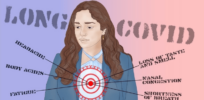
‘This should be setting off alarms’: Nearly 18 million Americans could be living with long COVID. What are the implications?
CDC data shows nearly 18m people could be living with long Covid even as health agency relaxes isolation recommendations ...

Making human eggs out of skin cells could change everything for infertile mothers or same sex parents. Here’s where the technology is today
New procedure could overcome common forms of infertility and help people have children who share their DNA ...

Viewpoint: 23andMe blames users for data hack that revealed names, addresses and genetic information of people with Jewish and Chinese heritage
23andMe pointed at people who ‘failed to update their passwords’ as sensitive data was offered for sale on forums ...
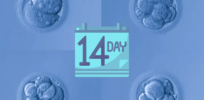
UK scientists support loosening restrictions limiting embryo research
Scientists are calling for a review of the UK's 14-day rule on embryo research, saying that extending the limit could help ...

Here’s how and why early humans created our world of mostly dark-eyed dogs
Researchers suggest that human preferences for a friendly face may have steered the evolution of canine eye colour ...

Night owls vs mourning doves: Neanderthal genes explain why some people find it easy to wake up early
Scientists find genes inherited from our prehistoric cousins increase tendency to rise early – useful in regions with short winter ...

Move over, Ozempic: Vibrating pill can satiate hunger, leading to weight loss
Dieters may have an answer now as research showed that a vibrating pill, swallowed before eating, that creates feelings of ...

Scent on the brain: Decline in olfactory abilities can signal conditions such as Alzheimer’s
Now researchers say our sense of smell, and its connection to our memory, could be used to help fight dementia ...
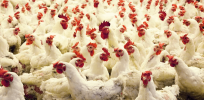
Eliminating bird flu: How gene-edited chickens could mitigate threats
In a recent gene editing study, my colleagues and I showcased the potential of gene editing to protect chickens from the threat ...

COP28: Farming is major part of agenda at this global climate crisis conference
Greenhouse gas emissions from farming and the land use change that often accompanies it, such as clearing forests and drying ...

The evolution of cuteness (or why Ryan Gosling’s Ken has captured so many hearts worldwide)
The big idea: The question of how to trigger the cuteness response has implications beyond toys and movies ...
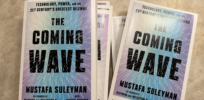
The Coming Wave: DeepMind co-founder’s book sends terrifying warning about AI and synthetic biology – but how seriously should we take it?
The Coming Wave is DeepMind founder Mustafa Suleyman’s book-length warning about technological expansionism: in close to 300 pages, he sets ...

Genes and sexuality: Could epigenetics help us understand the mystery of sexual orientation?
Reports of genes that “cause” human homosexuality (and many other human behaviours) have failed to stand up to scrutiny – ...

Do opposites really attract? Partners in most successful relationships share political views, education levels, drinking habits and more
Scientists find that most partners have shared traits including political views, education levels and drinking habits ...

Viewpoint: Bringing the mammoth back — Is it time to slow down de-extinction mania?
De-extinction is the science of restoring lost species and it has been in the news, sporadically, for decades ...

Podcast: Debating doppelgangers — How do two completely different people end up with the same face?
What can doppelgangers tell us about nature versus nurture? – podcast ...
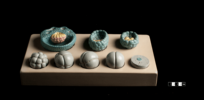
Viewpoint: Breakthroughs in effort to create ‘synthetic’ embryos have sparked criticism — but the research could help us reduce prevalence of miscarriages and genetic disorders
Are human embryo models a cause for hope or alarm? A recent breakthrough in the race to create ‘synthetic’ embryos ...

This hardy pea plant is climate-change resistant, but sometimes poisonous. Here’s how gene editing could turn it into a ‘climate crisis’ crop
It is grown in some of the world’s most inhospitable, arid regions and is noted for being rich in protein ...

Podcast: Future fertility — In the coming world of synthetic embryos, can regulation keep up?
Synthetic human embryos: can the law keep pace with the science? – podcast ...
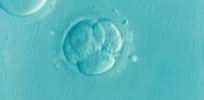
No need for sperm or eggs: Scientists have created synthetic human embryos using stem cells
Exclusive: Breakthrough could aid research into genetic disorders but raises serious ethical and legal issues ...
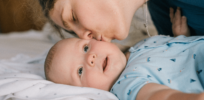
Podcast: UK baby born from three ‘parents’ stirs hope and concerns
The pioneering IVF procedure known as mitochondrial donation therapy (MDT) could prevent children from being born with devastating mitochondrial diseases ...
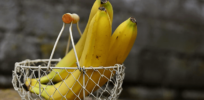
Australia slated to approve country’s first genetically modified crop: Disease-resistant bananas
Scientists have submitted Australia’s first genetically modified fruit – a Cavendish banana – to regulators for approval, saying it has ...

‘Groundbreaking IVF procedure’: First three-parent baby born in the UK through mitochondrial donation treatment
The first UK baby created with DNA from three people has been born after doctors performed a groundbreaking IVF procedure ...
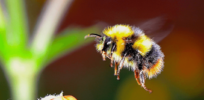
Do bees have emotions and dreams?
This March, ecologist Stephen Buchmann released a book that unpacks just how varied and powerful a bee’s mind really is ...

Could a vaccine rejectionist become the next US president? Robert F. Kennedy, Jr. announces bid for 2024 election
Robert F Kennedy Jr, an anti-vaccine activist and scion of one of the most famous American political families, is running ...

CRISPR cats and dogs? Royal Society for the Prevention of Cruelty to Animals raises alarm that pets could be ‘created’ with extreme features under new UK gene editing law
Pets could be gene-edited under new English law, says RSPCA: Act opens door to technology being used to create cats ...

Next generation medicine: Will the people who most need gene therapy and gene-editing tools have access to them?
One of greatest risks of gene editing tools ‘is that the people who would benefit most will not be able ...

Addressing childhood trauma: Could epigenetic gene editing reduce the likelihood of developing mental illness?
Many researchers now think that childhood trauma biologically embeds itself in our bodies, alters how our genes work and puts ...

